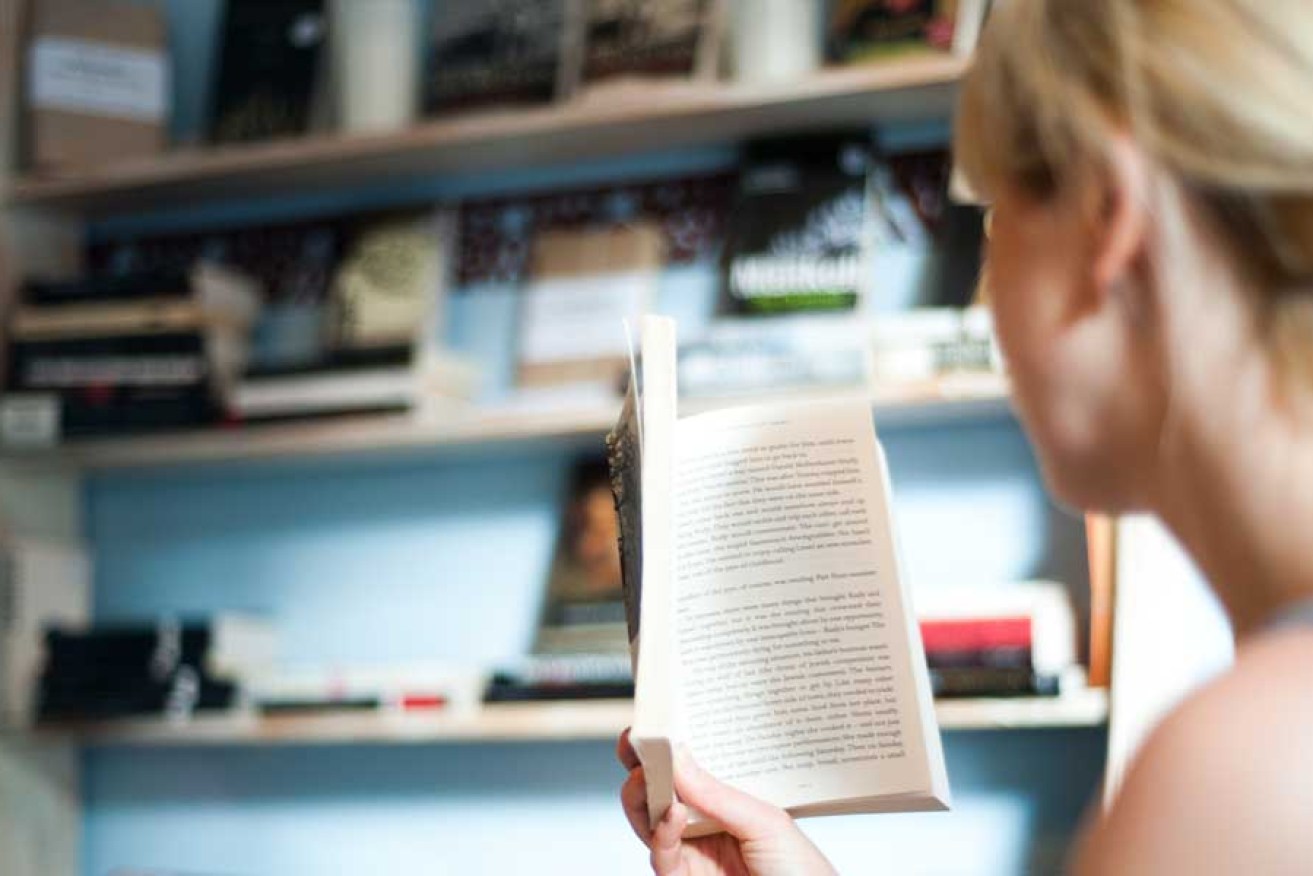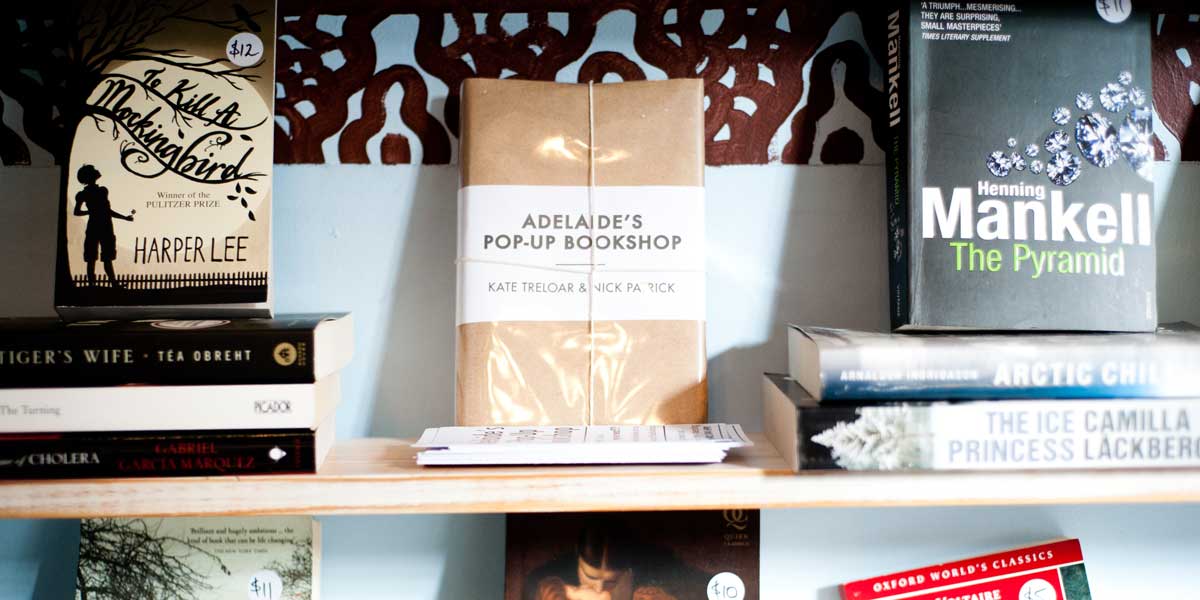Pop-up shops: threat or opportunity?

The pop-up bookshop teamed up with Adelaide cafes, such as the Chocolate Bean (pictured), to create a "Latte and Literature Trail" earlier this year.
It’s time to end the fear and hysteria about pop-up shops damaging traditional retailers, and realise that the real threat comes from elswhere, argues Adelaide pop-up bookseller Nick Patrick.
Rundle Mall Management has committed to installing pop-up businesses in the Mall and, whilst there has been some support, there has also been some very vocal opposition, with the main line of argument being that pop-ups will have a detrimental effect on established businesses.
This argument comes in many guises – ‘stealing customers’; ‘rent-free’; ‘fly-by-nighters’; ‘interlopers’ etc. But the basic premise is that pop-ups aren’t legitimate businesses because they don’t have long-term leases. If you accept this initial premise as truth then it is easy to invent reasons why established businesses need to be ‘protected’ from these illegitimate ones.
The only problem with the logic in this argument is that pop-up businesses are legitimate businesses. In fact, many established businesses also conduct pop-up projects to help market their flagship store.
Adelaide is not New York or London or even Sydney. We won’t gain any sort of reputation by begging big international brands to open their 17th Australian outlet in our CBD.
There are many different types of pop-up, incorporating food, art, retail, wine bars and a whole host of other experiences. My pop-up bookshop is what is termed a micro-business, but fits the description of a ‘ma-and-pa’ business better, for it is just my wife and me -a couple of CBD residents doing what we know and love.
It is understandable for people to get protective when they see local iconic stores go under – in the book trade alone Mary Martin, Angus & Robertson and a litany of others in recent times – and they see hard times forecast for the survivors. But I haven’t heard even the slightest suggestion that any of these companies were put out of business because of competition from a pop-up.
As previous owners of a ‘bricks-and-mortar’ bookshop we know where the similarities and differences lie but, essentially, our move from fixed business to pop-up could best be described as a business down-shift. We are now the smallest of small businesses. We have modest aims and, because our lives are intrinsically linked with Adelaide, we have a holistic interest in the CBD being all that it could be.
Adelaide is not New York or London or even Sydney. We won’t gain any sort of reputation by begging big international brands to open their 17th Australian outlet in our CBD. But we can explore what happens when locals collaborate. This is where the greatest potential for pop-ups lies and there are three great opportunities for Adelaide at hand.
If we can agree that a precinct flourishing with creative small businesses is something to be encouraged, it would be a small-minded person indeed who would suggest that creating division and outright war between these small businesses would be in any way beneficial to that aim.
Yet the paradoxical argument that pop-ups should be eradicated in order to protect local small businesses is exactly what is being purported.
The best example of this counter-productive divisiveness in action can be seen in Adelaide’s mobile-food phenomenon. In essence, it began with a small number of vans (Burger Theory et al) serving up some great food in random locations and generating a cult-like following.
I think we missed an opportunity when the scaremongers started predicting tumbleweeds down Rundle Street. Where were the creative fixed-business owners saying ‘how can I get a piece of this action?’ Unfortunately, the divide remains and the food vans continue to live precariously on the back of strong but fickle public support. But imagine if established businesses combined with the food vans rather than waging war … the potential is still there.
OPPORTUNITY #1: I love Fork on the Road – the atmosphere and the quality and variety of the food is amazing. But it’s segregated and everyone knows it’s all about the food vans. There is an unnecessary divide which is hindering Adelaide’s opportunity to truly make a mark on the world’s food stage. I propose the concept of a ‘Fork’ on Rundle or Gouger streets. Close off the street, line the food vans down the middle, get the fixed eateries involved and the potential is there for something really special. The Fork organisers have now got the event experience and a monthly or quarterly extravaganza like this is not unthinkable.
OPPORTUNITY #2: Rundle Mall management also has an excellent opportunity to demonstrate what can be achieved by cohesiveness rather than divisiveness. I’m not sure what retail pop-ups the mall’s management has lined up but, in the spirit of ‘placemaking’, maybe a chocolate hub could be created near Haighs or a book nook near Dymocks (unabashed book trade promotion). Once again, it’s simply a case of looking toward potential positives rather than freaking out about an unlikely apocalypse. Rundle Mall management is perfectly placed to encourage cooperation between small businesses – indeed, this should be a major focus.
OPPORTUNITY #3: Adelaide City Council’s street trading permits have inexplicably gone missing over the past 12 months – a victory for the scaremongers and a loss for everyone else. But as they are now back on the agenda, it is time to create linkages between pop-ups and fixed businesses. There are plenty of coffee shops that would love to have a bookshop pop-up out the front for a few days (yes, I’m open to invitations). And there are other ideal match-ups – a shoe-shiner out front of a shoe store; handbags for a dress shop; a photography exhibition for an art gallery – I’ll leave other suggestions to more imaginative entrepreneurs.
If there is a war to be waged, it is with the online world. And it is somewhat ironic that online is winning by using the most basic of historical war strategies – divide and conquer.
Pop-up culture is about re-igniting the public’s passion for the tangible – in our case it’s books (remember them?) but it can equally be about food, fashion, art or anything really.
We want businesses run by locals. We want diversity of product. We want fresh and interesting interactions. And these are the very qualities pop-up shops provide.
In these days of multi-national corporations and online behemoths, it is worth remembering that a business is a business, no matter how small.
Nick Patrick has sent these thoughts from Europe, where he is researching the book trade and pop-up retailers.
What do you think? Send us letters via email to [email protected], including your full name. The editor reserves the right to edit letters.
Or join the discussion on our Facebook page.





